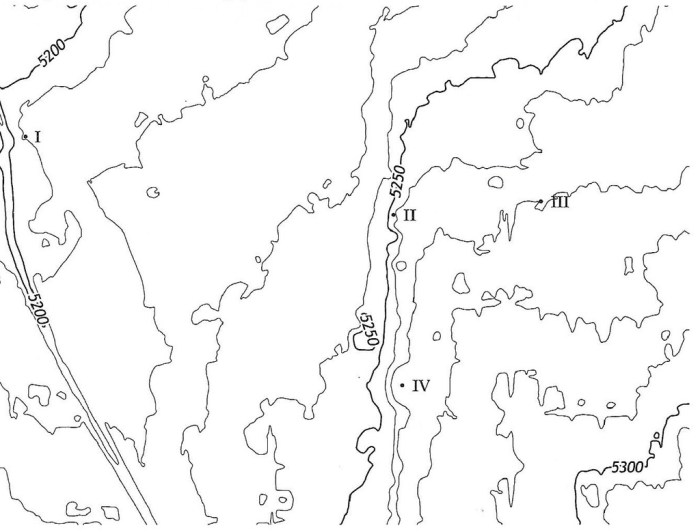Embark on a scientific adventure with the Abeka 8th Grade Science Test 2! This comprehensive guide will navigate you through the intricacies of the test, empowering you to conquer its challenges and soar to success.
Delve into the depths of science concepts, master effective study strategies, and uncover invaluable tips to maximize your performance on test day. Get ready to unlock your scientific potential and leave an unforgettable mark on the Abeka 8th Grade Science Test 2!
Abeka 8th Grade Science Test 2 Overview
The Abeka 8th Grade Science Test 2 is a comprehensive assessment designed to evaluate students’ understanding of key scientific concepts covered in the Abeka 8th Grade Science curriculum.
The test comprises multiple-choice, true/false, and short answer questions that assess students’ knowledge of various science topics, including:
Test Format
- Number of Questions:50
- Question Types:Multiple-choice, true/false, short answer
- Time Limit:60 minutes
Topics Covered
- Earth Science:Plate tectonics, rock cycle, weather, climate, ecosystems
- Life Science:Cells, genetics, evolution, ecosystems, human body systems
- Physical Science:Motion, forces, energy, waves, electricity, magnetism
Preparation Strategies
Adequate preparation is key to success in the Abeka 8th Grade Science Test 2. By implementing effective study methods, utilizing various resources, and employing smart time management and test-taking strategies, you can enhance your understanding of the subject matter and boost your confidence on test day.
If you’re tackling the Abeka 8th Grade Science Test 2, don’t forget to check out the case study on Empro Manufacturing v. Ball Co. . This real-world example of product liability and negligence can help you grasp the legal concepts tested in the exam.
Remember to apply the principles you’ve learned to the science-related scenarios presented in the test.
Study Methods
Effective study methods include:
- Active Recall:Regularly test yourself on the material you’ve learned by attempting to recall it from memory without looking at your notes.
- Spaced Repetition:Review the material at increasing intervals to strengthen your memory and improve long-term retention.
- Chunking:Break down large amounts of information into smaller, manageable chunks to make it easier to process and retain.
Resources, Abeka 8th grade science test 2
Utilize a variety of resources to enhance your preparation:
- Textbooks:Thoroughly review your assigned textbook, paying close attention to key concepts, definitions, and formulas.
- Online Materials:Explore online resources such as Khan Academy, Crash Course, and Science Buddies for additional explanations, videos, and interactive simulations.
- Practice Tests:Take practice tests to familiarize yourself with the test format, question types, and time constraints.
Time Management and Test-Taking Strategies
Time management and test-taking strategies can help you maximize your performance on test day:
- Create a Study Schedule:Plan a realistic study schedule that allows you ample time to cover all the material and practice your skills.
- Prioritize Topics:Identify the most important topics and allocate more study time to them.
- Take Breaks:Regular breaks during study sessions help improve focus and prevent burnout.
- Manage Test Anxiety:Practice relaxation techniques such as deep breathing or meditation to reduce stress and improve concentration during the test.
Key Concepts and Topics

Understanding the key concepts and topics covered on the Abeka 8th Grade Science Test 2 is crucial for achieving success. These concepts form the foundation of the test and provide the framework for answering questions accurately. By mastering these concepts, students can demonstrate their comprehension of the subject matter and their ability to apply scientific principles.The
table below summarizes the major concepts and their corresponding topics tested on the exam:
| Concept | Topics |
|---|---|
| Earth’s Systems |
|
| Matter and Energy |
|
| Life Science |
|
| Physical Science |
|
A thorough understanding of these concepts is essential for answering questions effectively. Students should focus on grasping the fundamental principles, definitions, and relationships within each topic. By doing so, they will be well-equipped to demonstrate their knowledge and critical thinking skills on the Abeka 8th Grade Science Test 2.
Practice Questions and Sample Responses

Mastering the question types on the Abeka 8th Grade Science Test 2 is crucial for success. By practicing with diverse sample questions and analyzing effective sample responses, you can enhance your understanding of the concepts and improve your answer quality.
Here’s a table showcasing various question types along with sample questions and responses:
| Question Type | Sample Question | Sample Response |
|---|---|---|
| Multiple Choice | Which of the following is NOT a renewable resource? |
Correct Answer:Coal |
| True/False | The Earth’s atmosphere is composed primarily of oxygen. | FalseThe Earth’s atmosphere is composed primarily of nitrogen and oxygen, with nitrogen making up about 78% and oxygen about 21%. |
| Short Answer | Explain the process of photosynthesis. | Photosynthesis is the process by which plants use sunlight, carbon dioxide, and water to create glucose (sugar) and oxygen. This process occurs in the chloroplasts of plant cells. |
| Essay | Discuss the importance of biodiversity in an ecosystem. | Biodiversity, or the variety of life on Earth, plays a crucial role in ecosystem stability. It provides a range of ecological functions, including nutrient cycling, pollination, and regulation of food webs. Biodiversity also contributes to the resilience of ecosystems, making them more resistant to disturbances such as climate change and pollution. |
Common Pitfalls to Avoid:
- Rushing through questions without reading them carefully.
- Guessing instead of using knowledge or logic to eliminate incorrect options.
- Using vague or incomplete language in short answer and essay responses.
Strategies for Improving Answer Quality:
- Read each question thoroughly and identify the key concepts.
- Use specific examples and evidence to support your answers.
- Proofread your responses to ensure clarity and accuracy.
Test-Taking Tips and Strategies

Maximizing your performance on the Abeka 8th Grade Science Test 2 requires a combination of preparation and strategic test-taking skills. By following these tips, you can effectively manage your time, prioritize questions, and handle challenging tasks with confidence.
Effective time management is crucial. Before starting the test, allocate a specific amount of time to each section. This will help you avoid spending too much time on any one question and ensure you complete all sections within the allotted time.
Prioritizing Questions
When faced with multiple questions, it’s essential to prioritize those that you can answer confidently. Start with the questions you are most familiar with to build momentum and confidence. This will help you stay focused and avoid getting bogged down by challenging questions early on.
Handling Challenging Questions
Don’t panic if you encounter challenging questions. Take a deep breath and carefully read the question. If you’re unsure about the answer, try to eliminate any obviously incorrect options. Use process of elimination to narrow down your choices and increase your chances of selecting the correct answer.
Reviewing Answers
Once you’ve completed the test, take some time to review your answers. Check for any careless mistakes or omissions. If you’re unsure about a particular answer, consider revisiting the corresponding section to refresh your memory and ensure your selection is accurate.
Avoiding Common Mistakes
To avoid common mistakes, carefully read the instructions and ensure you understand what is being asked. Don’t make assumptions or guess at answers. If you’re unsure about a question, ask the teacher or proctor for clarification.
FAQ Overview
What is the format of the Abeka 8th Grade Science Test 2?
The test comprises multiple-choice questions, short answer questions, and essay questions, covering a wide range of science concepts.
How can I effectively prepare for the test?
Thoroughly review the course material, utilize practice tests, and seek guidance from your teacher or a tutor.
What are some tips for maximizing my performance on test day?
Manage your time wisely, prioritize questions, and carefully review your answers before submitting them.
